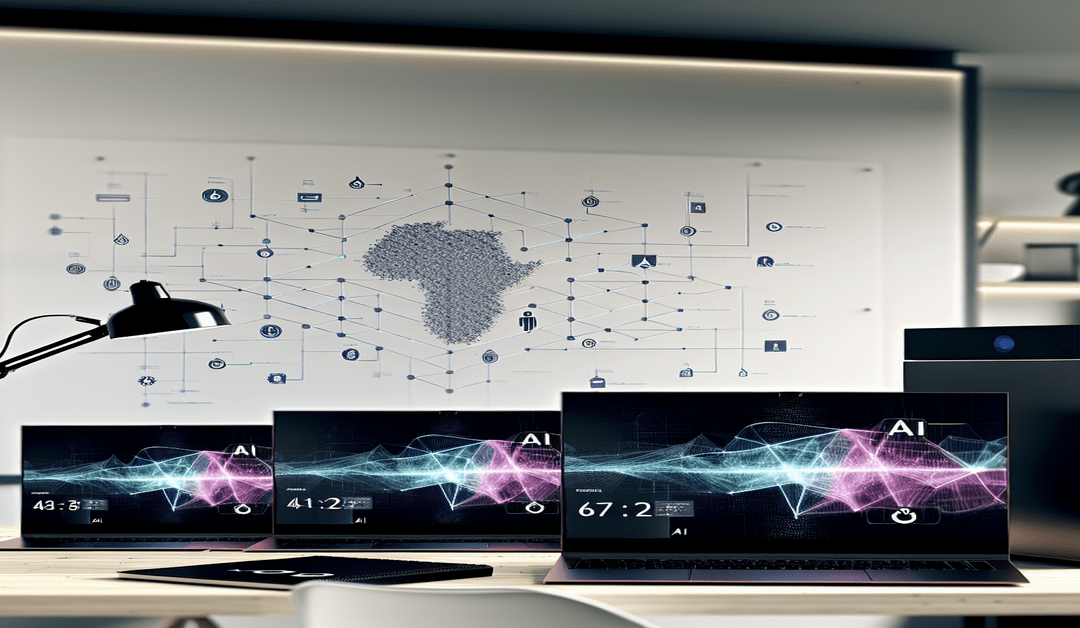The AI Revolution: Transforming the Laptop Class and the Future of Work
In recent years, artificial intelligence (AI) has been making significant strides, permeating various aspects of our lives. From virtual assistants to personalized recommendations, AI is becoming increasingly ubiquitous. However, one area where AI is poised to have a profound impact is in the realm of work and employment, particularly for the “laptop class” – those who primarily work remotely using their laptops.
The integration of AI into laptops and workplaces is not a distant future; it’s already happening. Major tech companies are investing heavily in AI research and development, with the aim of enhancing the capabilities of their devices and software. Experts predict that by 2025, AI-enabled PCs will dominate the market, offering users unparalleled performance, personalization, and security.
AI as a Collaborator, Not a Competitor
One of the primary concerns surrounding the rise of AI is the potential for job displacement. Many fear that as AI becomes more sophisticated, it will render certain jobs obsolete. However, this view may be overly simplistic. While it’s true that AI can automate routine tasks, it’s also creating new opportunities for collaboration and innovation.
Recent studies suggest that AI could actually lead to net job creation, as it frees up humans to focus on more complex and creative work. Rather than replacing humans, AI is increasingly being seen as a collaborator – a tool that can assist with tasks that require data processing and pattern recognition, allowing humans to focus on strategic and emotionally nuanced tasks that are uniquely human.
Enhancing Productivity and Enabling New Applications
The integration of AI into laptops and workplaces is not just about automating tasks; it’s also about enhancing productivity and enabling new applications. AI can help with decision-making, process optimization, and even predicting future trends. This can be especially valuable in industries like education and healthcare, where AI can assist with personalized learning and medical diagnosis.
Moreover, AI is opening up new possibilities for remote work. With AI-powered tools like virtual assistants and real-time translation, remote collaboration has never been easier. This could have significant implications for the future of work, as more companies embrace remote and hybrid work models.
Challenges and Opportunities
Of course, the integration of AI into laptops and workplaces is not without its challenges. There are concerns about the **environmental impact** of AI, as well as the need for clear **ROI** in AI investments. Additionally, there are ethical considerations around data privacy and the potential for AI to perpetuate biases.
Despite these challenges, the future of work looks promising. As AI technology continues to advance, it will likely reshape industries in ways we can’t yet imagine. The key will be to approach AI as a tool for augmenting human capabilities, rather than replacing them. By embracing a symbiotic relationship between humans and AI, we can harness the power of this technology to drive innovation and create new opportunities.
The Way Forward
As we navigate this new landscape, it’s crucial that we approach AI with a balanced perspective. While there are certainly challenges to overcome, the potential benefits of AI are too significant to ignore. By investing in AI research and development, and by fostering a culture of continuous learning and adaptation, we can position ourselves to thrive in the AI-powered future of work.
So, whether you’re a member of the laptop class or not, now is the time to start thinking about how AI could impact your work and your industry. By staying informed and proactive, you can be at the forefront of this exciting new frontier.
#ArtificialIntelligence #FutureOfWork #LaptopClass
-> Original article and inspiration provided by Dylan Matthews
-> Connect with one of our AI Strategists today at Opahl Technologies

